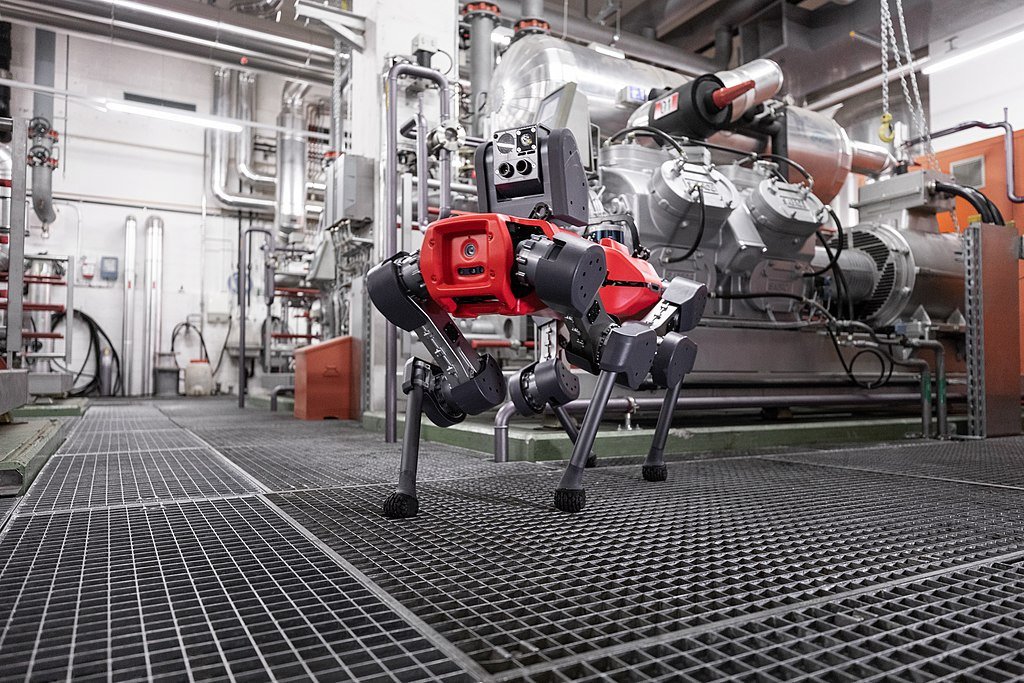How will AI change the world

How Will AI Change the World?
Artificial Intelligence (AI) has swiftly transitioned from being a concept in science fiction to a driving force reshaping industries, economies, and everyday life. As AI continues to evolve, its potential to change the world is vast and multifaceted. This story explores the many dimensions of AI’s transformative power and the possibilities it holds for the future of humanity.
The Dawn of a New Era
AI’s impact on the world is comparable to other monumental technological advancements, such as the Industrial Revolution or the advent of the internet. The difference lies in AI’s ability to learn, adapt, and perform tasks traditionally requiring human intelligence. With machine learning algorithms, neural networks, and natural language processing, AI has grown capable of recognizing patterns, making decisions, and even creating art.
But how exactly will AI change the world? Let’s delve into its potential impact across various domains.
1. Revolutionizing Healthcare
The healthcare industry is undergoing a seismic shift due to AI-driven innovations. Machine learning algorithms can analyze medical data with unparalleled speed and accuracy, enabling earlier diagnoses and personalized treatments. For example:
- Early Detection of Diseases: AI systems like IBM’s Watson and Google’s DeepMind can analyze imaging data to detect diseases like cancer and Alzheimer’s at their earliest stages.
- Drug Discovery: AI accelerates the drug development process by identifying potential compounds and predicting their efficacy, cutting down years of research.
- Robotic Surgery: AI-powered surgical robots assist doctors in performing complex procedures with precision, reducing recovery times and improving patient outcomes.
- Telemedicine and Virtual Care: Chatbots and virtual assistants provide medical advice, schedule appointments, and monitor chronic conditions, improving accessibility to healthcare.
With AI’s integration into healthcare, life expectancy and quality of life are poised to improve globally.
2. Transforming Education
AI is also revolutionizing how we learn and teach. Personalized education, powered by AI, tailors learning experiences to individual needs, preferences, and abilities. Adaptive learning platforms like Khan Academy and Duolingo use AI to:
- Identify Learning Gaps: Algorithms analyze a student’s performance to highlight weaknesses and provide targeted exercises.
- Automate Grading: Teachers save time as AI tools handle administrative tasks, allowing them to focus on teaching.
- Virtual Tutors: AI-powered chatbots serve as 24/7 tutors, offering explanations and feedback in real time.
- Global Access to Education: AI bridges the educational divide by providing affordable, quality education to underprivileged communities through online platforms.
By democratizing access to knowledge, AI has the potential to create a more equitable and informed world.
3. Reshaping the Workforce
The integration of AI into workplaces is both exciting and contentious. While it promises efficiency and innovation, it also raises concerns about job displacement. Here are some key aspects of AI’s influence on the workforce:
- Automation of Repetitive Tasks: AI handles tasks like data entry, customer service, and inventory management, freeing humans for more creative and strategic roles.
- Creation of New Jobs: The rise of AI has led to roles in AI ethics, machine learning engineering, and AI systems maintenance.
- Upskilling the Workforce: Employees will need to learn new skills to adapt to AI-driven environments, fostering a culture of continuous learning.
- Redefining Industries: From manufacturing to finance, AI optimizes operations and introduces novel business models.
While challenges remain, AI’s potential to enhance productivity and create opportunities is undeniable.
4. Environmental Sustainability
AI is playing a crucial role in addressing environmental challenges. By analyzing vast datasets and identifying trends, AI helps:
- Monitor Climate Change: AI models predict climate patterns and assess the impact of human activities on ecosystems.
- Optimize Energy Use: Smart grids and AI-powered energy management systems reduce waste and promote renewable energy adoption.
- Combat Deforestation: AI-powered drones monitor forests and detect illegal logging activities.
- Enhance Agriculture: Precision farming techniques, guided by AI, optimize crop yields while minimizing resource use.
These advancements are vital as humanity grapples with the pressing need for sustainability.
5. Transforming Transportation
The transportation industry is on the cusp of an AI-driven revolution. Autonomous vehicles, predictive maintenance, and traffic optimization are some of the ways AI is reshaping mobility:
- Self-Driving Cars: Companies like Tesla, Waymo, and Uber are developing autonomous vehicles to enhance road safety and reduce traffic congestion.
- Smart Cities: AI optimizes public transport systems and traffic flow, reducing commute times and pollution.
- Logistics and Delivery: AI streamlines supply chains, enabling faster and more efficient delivery of goods.
- Aviation: AI-powered systems enhance flight safety, predict maintenance needs, and optimize fuel consumption.
These innovations promise to make transportation safer, greener, and more efficient.
6. Redefining Creativity and Entertainment
AI has entered the creative realm, challenging traditional notions of art, music, and storytelling. Generative AI tools like DALL-E and ChatGPT showcase how machines can:
- Create Visual Art: AI algorithms produce stunning digital art, often indistinguishable from human-made works.
- Compose Music: AI systems compose original music tailored to specific moods or genres.
- Write Stories: AI-generated narratives blur the line between human and machine authorship.
- Enhance Gaming: AI creates dynamic and immersive gaming experiences by adapting to player behavior in real time.
Rather than replacing human creativity, AI serves as a powerful tool for collaboration and innovation.
7. Enhancing Security and Privacy
AI has transformed cybersecurity by offering advanced threat detection and response systems. However, its dual-use nature raises ethical concerns. Key developments include:
- Fraud Detection: AI analyzes transaction patterns to identify fraudulent activities in real time.
- Predictive Policing: AI algorithms help law enforcement anticipate and prevent crimes, though their use must be balanced with ethical considerations.
- Personalized Security: AI strengthens authentication systems through biometric data, such as facial recognition and fingerprint scanning.
As AI enhances security measures, it also necessitates robust frameworks to safeguard privacy and prevent misuse.
8. Challenges and Ethical Considerations
While AI’s potential is immense, it also poses significant challenges. Ethical dilemmas include:
- Bias in AI Systems: AI can perpetuate existing biases if trained on biased datasets.
- Loss of Privacy: The collection of personal data raises concerns about surveillance and misuse.
- Autonomy and Control: As AI becomes more powerful, questions about accountability and control arise.
- Job Displacement: Automation could exacerbate unemployment if not managed responsibly.
Addressing these challenges requires collaboration among governments, industries, and academia to establish ethical AI practices.
A Glimpse into the Future
Imagine a world where AI-powered systems work seamlessly with humans, enhancing our capabilities while respecting ethical boundaries. Here are some speculative yet plausible scenarios:
- Personalized Assistants: AI assistants evolve into trusted companions, managing schedules, finances, and health.
- Smart Cities: Urban environments become interconnected ecosystems, optimizing resources and improving quality of life.
- Space Exploration: AI aids in interstellar missions, analyzing data and supporting human astronauts in exploring the cosmos.
- Universal Translator: AI enables effortless communication across languages, fostering global collaboration and understanding.
The possibilities are limited only by our imagination and our ability to navigate the challenges.
AI is poised to change the world in profound ways. From revolutionizing industries to addressing global challenges, its transformative potential is unparalleled. However, the journey ahead demands vigilance, collaboration, and ethical foresight to ensure AI serves humanity’s best interests.
As we stand on the brink of an AI-driven future, one thing is clear: the world will never be the same again. Whether it’s for better or worse depends on the choices we make today.





